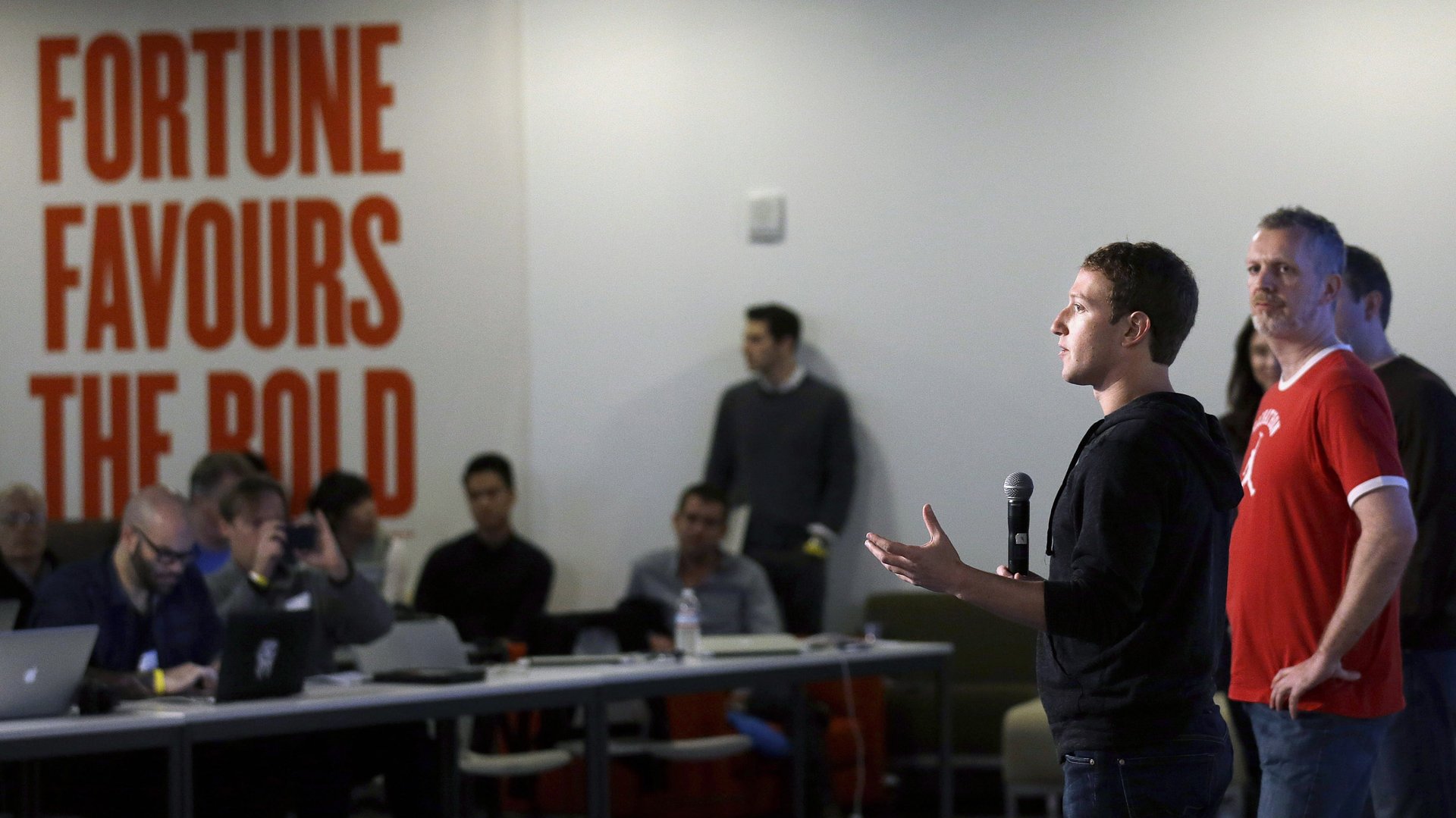Mark Zuckerberg joins the $1 salary club
Facebook confirmed in a filing that Mark Zuckerberg, the social network’s founder and CEO, is making a salary of $1 this year and foregoing any bonuses, as well.


Facebook confirmed in a filing that Mark Zuckerberg, the social network’s founder and CEO, is making a salary of $1 this year and foregoing any bonuses, as well.
But he’s not exactly taking a vow of poverty. When Facebook went public last year, Zuckerberg exercised 60 million stock options, then worth nearly $2.3 billion, buying those shares for next to nothing. (He sold half of the stock to cover his tax bill.) And he’s still sitting on another 60 million stock options that can be exercised on Nov. 7, 2015, for the same dirt-cheap price of six cents.
All of those shares give Zuckerberg plenty of incentive to keep Facebook in good financial health, although he is on record saying, “We don’t wake up in the morning with the primary goal of making money,” and isn’t really beholden to shareholders, since he controls a majority of proxy votes.
The $1 salary is symbolic. Companies have to compensate all of their employees, so working for free is out of the question—and doesn’t $1 sound better, anyway? Since the first dot-com boom, getting paid $1 has become something of a tradition among extremely wealthy executives whose compensation instead comes in the form of stock.
Steve Jobs famously took a $1 salary from the time he returned to Apple as CEO in 1998; he didn’t take any stock grants after 2003, either. In 2005, Google co-founders Larry Page and Sergey Brin, along with then-CEO Eric Schmidt, all reduced their salaries to $1. Schmidt, now executive chairman, takes a salary of several million dollars these days; Page, now CEO, and Brin still make $1.
Other tech CEOs who belong to the $1 salary club include Oracle’s Larry Ellison, Tesla’s Elon Musk, Zynga’s Mark Pincus, and H-P’s Meg Whitman. Yahoo’s Jerry Yang was making $1 before he was ousted as CEO last year. Outside of Silicon Valley, CEOs of American companies who made $1 in salary last year include Capital One’s Richard Fairbank, Urban Outfitters’s Richard Hayne, Fossil’s Kosta Kartsotis, Kinder Morgan’s Richard Kinder, and Duke Energy’s James Rogers.
Among the $1 salary club, only Karsotis, the watchmaker’s longtime leader, actually made nothing in 2012, according to a Bloomberg analysis of proxy filings. He owns 11% of the company but didn’t receive any additional stock or stock options last year. ”Mr. Kartsotis is one of the initial investors in our company and expressed his belief that his primary compensation is met by continuing to drive stock price growth,” the company said in its filing.
That’s generally how $1 salaries are explained, but sometimes they come in the form of punishment or self-flagellation. When Lee Iacocca was brought in to save Chrysler from bankruptcy in 1978, he took a $1 salary as a publicity stunt. Vikram Pandit‘s salary was reduced to $1 in 2010 as Citigroup struggled to recover from the financial crisis and executive compensation packages on Wall Street were facing intense public criticism; he was still fired two years later.
Zuckerberg’s $1 salary for 2013 was first revealed in Facebook’s IPO filing, but the proxy filing yesterday confirmed the amount and added that he won’t receive any bonus, either. It also revealed that Zuckerberg received a $266,101 bonus last year in addition to his $500,000 base salary. He also gets to use Facebook’s private planes, of course. Professional trips don’t count as compensation, but his personal trips on Air Facebook last year cost more than $1.2 million.